A car fan is important because it pulls air through the radiator. If you notice that your car fan isn't turning off, you may be wondering what to do to tackle this problem. Fortunately, we have consulted experts in this field, and here is what they have to say.
A car fan not turning off could be a result of various problems. Here are things you can do if you notice that your car fan isn't turning off:
- Remove and disconnect the negative side of your car's battery.
- Check your coolant level.
- Check your temperature sensor.
If you discover that your car fan isn't turning off, you should deal with the issue as soon as you can, so it does not get worse. Keep reading to get detailed information about how to tackle the problem of car fans.
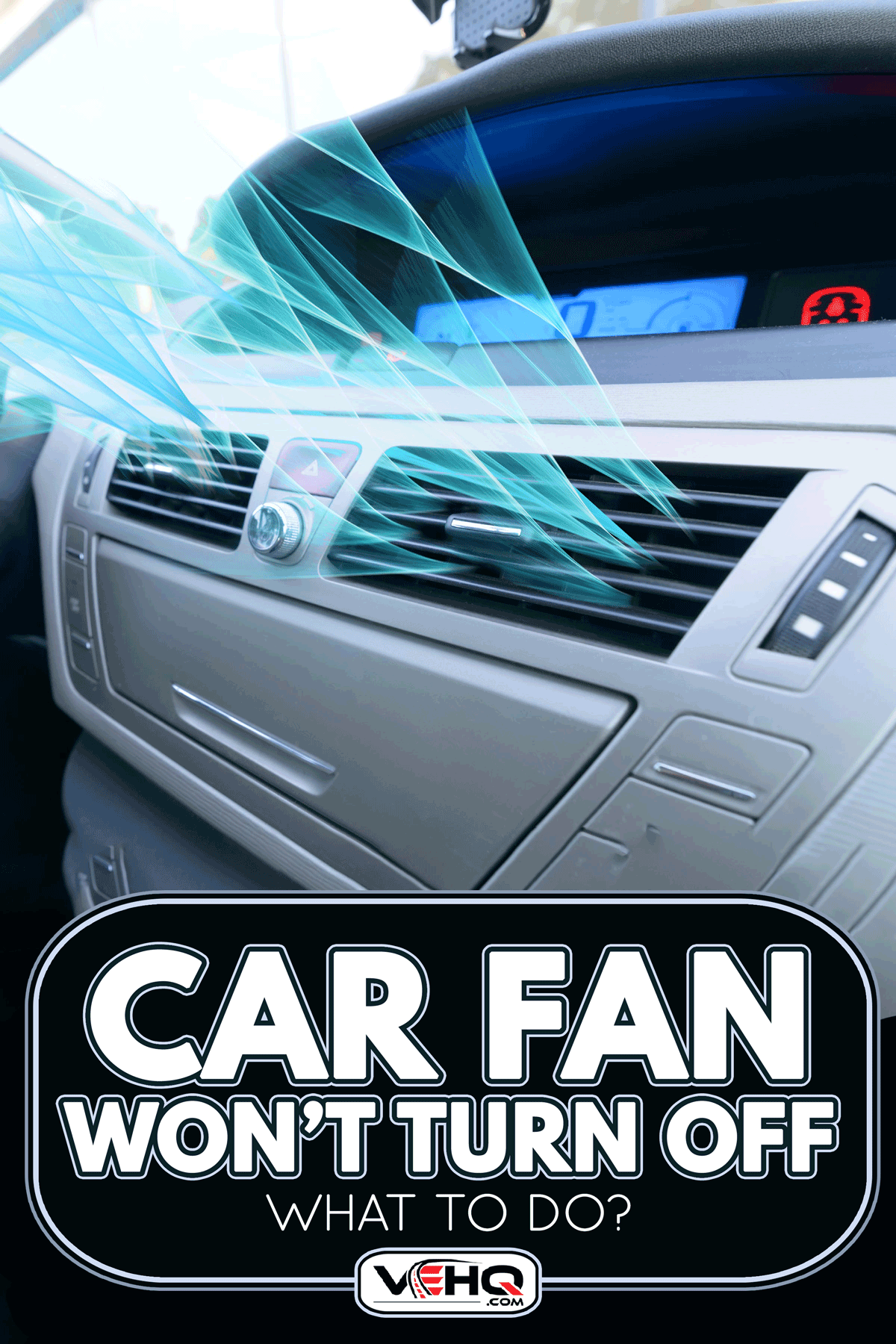
What Should I Do When My Car Fan Doesn't Turn Off?
After parking your vehicle and turning off the engine, if you notice that the cooling fan is still running, you should do the following:
Remove And Disconnect The Negative Side Of Your Car's Battery
If you notice that your car fan isn't turning off, you should stop your car battery from running down by removing and disconnecting the cable attached to the battery's negative terminal.
When the negative end of the battery wire is disconnected, and the automobile fan goes off, then the relay is the source of the problem.
Additionally, you can fix your fan relay by replacing it with a new one. Use the identical pin design. You can also use a digital multimeter to examine the cooling fan relay.
View this digital multimeter on Amazon.
Check Your Coolant Level
You can also examine the amount of coolant that you have to find out whether it is low or not. This is to determine if the problem is due to low coolant.
You should also check for leaks. If your vehicle's coolant level is low, your engine may become hotter. This may result activate the vehicle's cooling fan.
See this vehicle coolant on Amazon.
Check Your Temperature Sensor
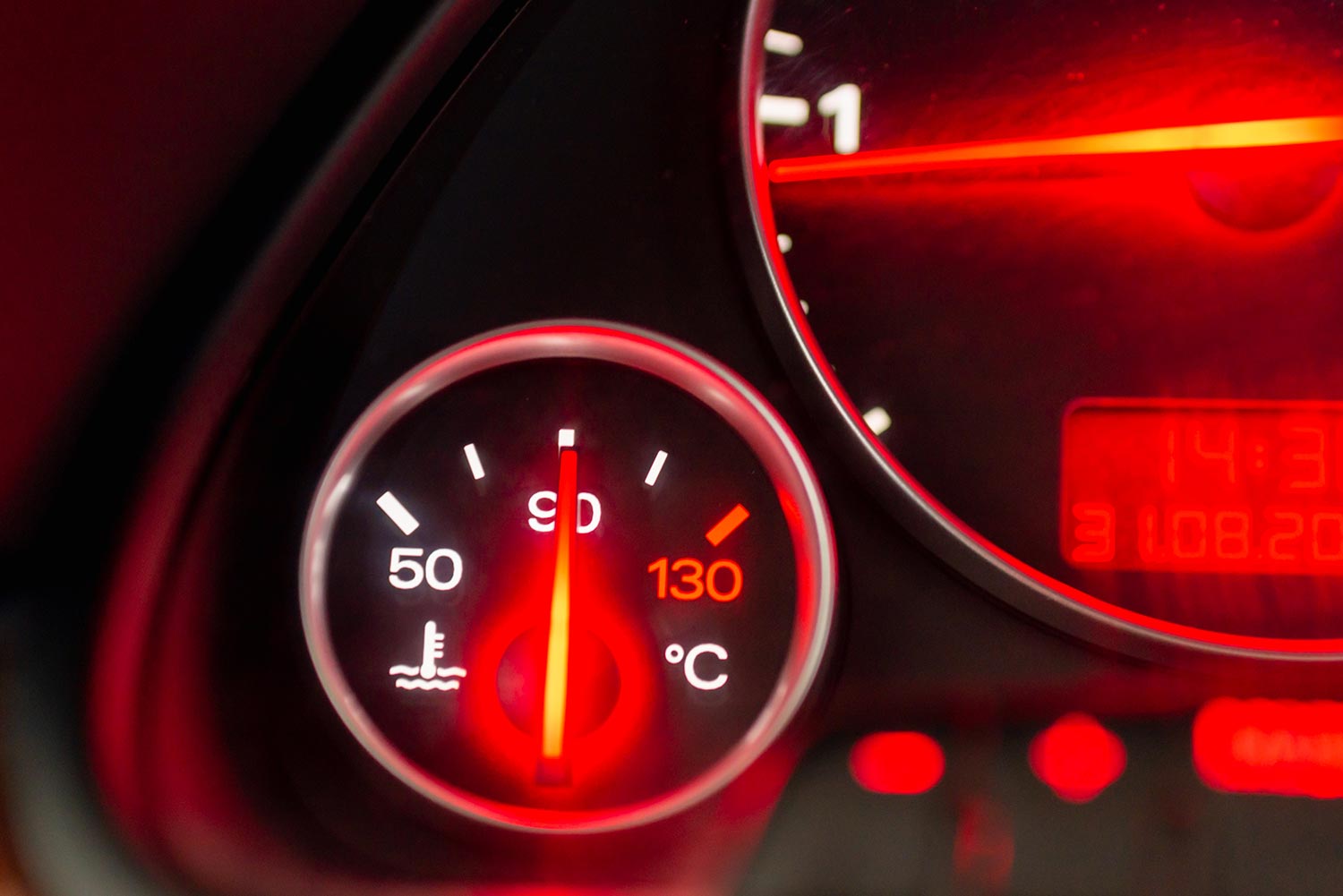
If the fan on your vehicle continues to run even after you turn off the engine, you should check the coolant temperature sensor because it may be faulty. The coolant temperature sensor provides the engine control unit with its signal.
Why Is My Car Fan Not Turning Off?
The radiator fan is an essential component of your vehicle's cooling system, and it may start malfunctioning over time. Here are the most common reasons why your car fan won't turn off:
Low Coolant Level
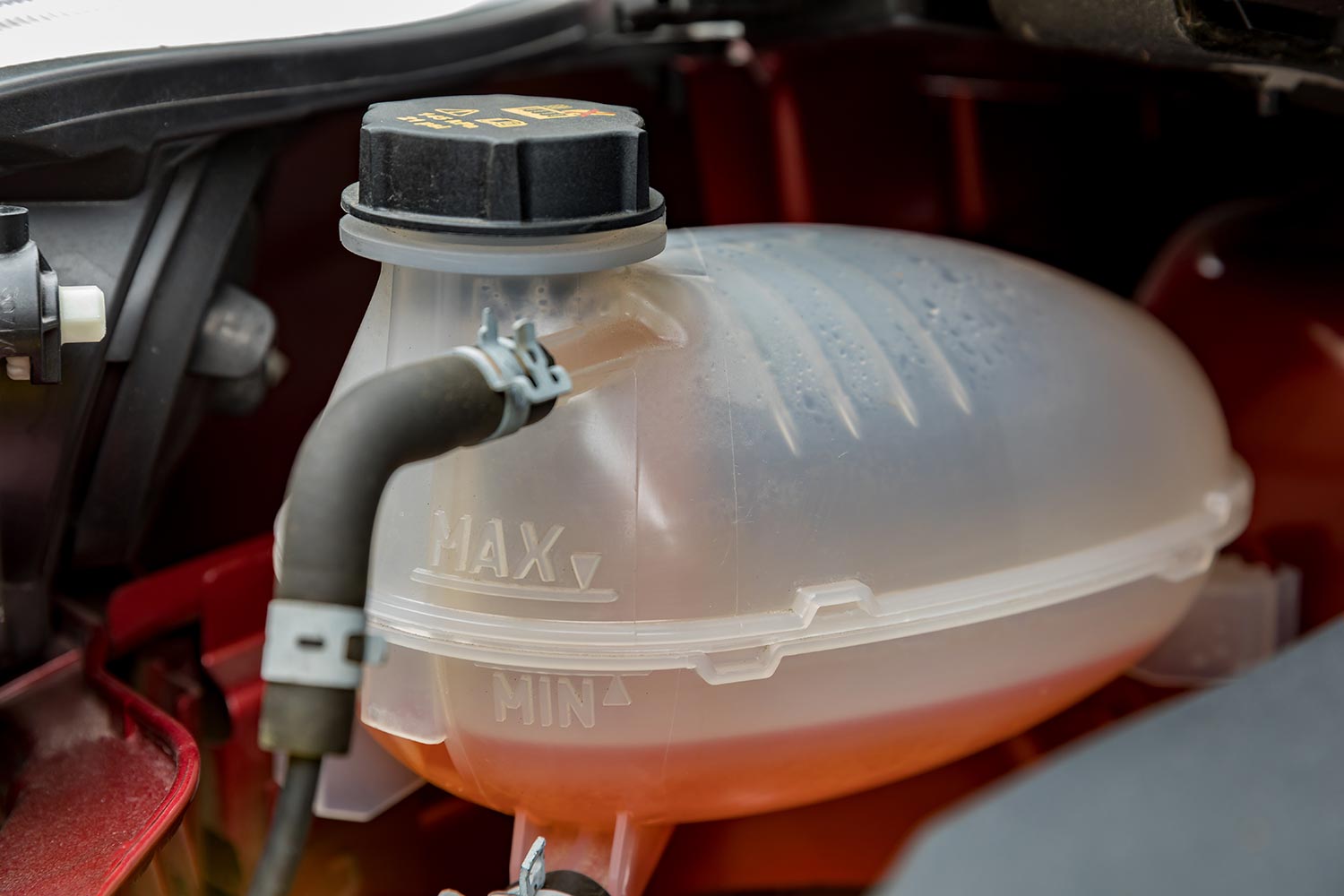
If the fan in your automobile continues to run even after you have shut off the engine of your vehicle, then the coolant in your car may be too low. The water pump is a potential source of leaks and when these leaks occur, your coolant reduces, and this may cause your fan to keep running.
Bad Thermostat Housing
The housing for your thermostat may be a possible source of the problem. There is a chance that the casing has leaked on it.
Faulty Radiator
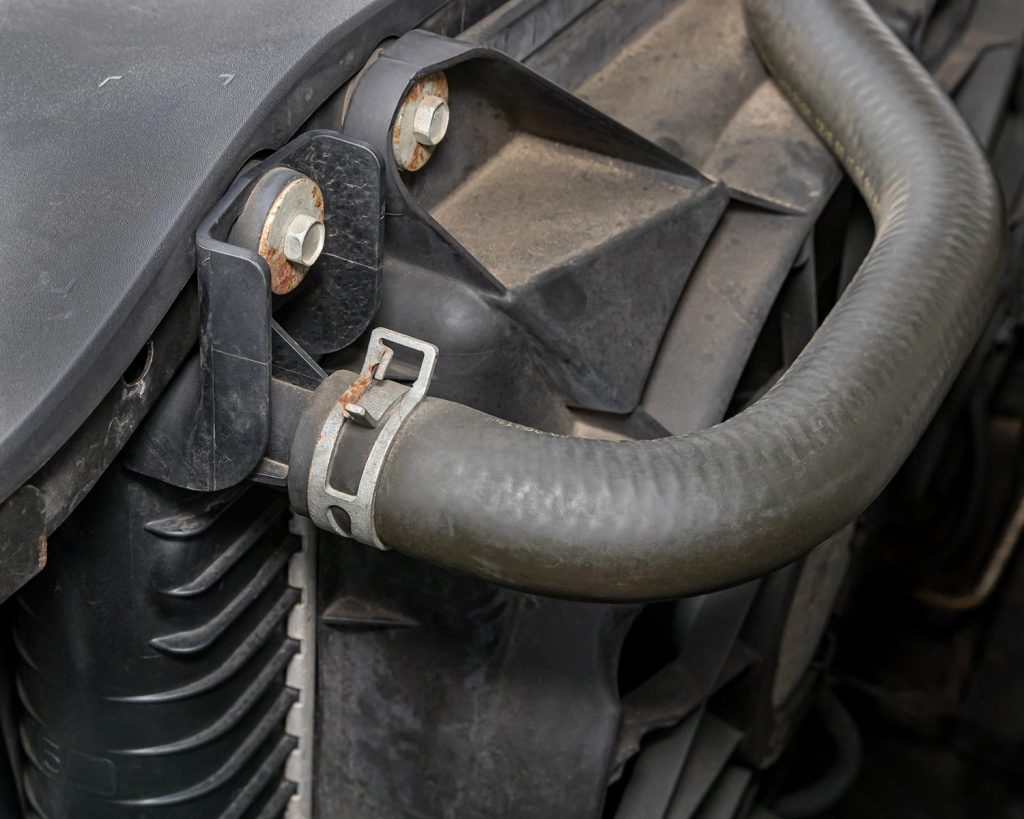
The radiator in your car is also a possible source of the problem. Your car fan may not turn off if your radiator is damaged. Cracks in the radiator can be a cause of the problem. Radiator hoses could also be where the problem is coming from. The upper and lower radiator hoses on your vehicle are susceptible to wear and tear.
It is possible for the radiator hose and pipe to rust. When the pipe and hose get rusted, it automatically becomes damaged. When this happens, your car fan may not turn off.
Bad Radiator Fan Relay
The radiator fan relay is another possible cause of the problem, and you should examine it. The fan relay regulates the flow of electricity to the cooling fan. The automobile's fan will be affected if there are problems with the relay. For instance, the radiator fan relay can get stuck in the on position and become inoperable.
What Sensor Controls the Car Fan?
The coolant temperature sensor controls the car fan. The coolant temperature sensor is usually referred to as a negative temperature coefficient kind of sensor. The coolant temperature sensor sends a signal to the Engine Control Unit (ECU), which in turn receives the signal from the engine's coolant temperature sensor and controls the cooling fan.
How Temperature Sensor Works
The coolant temperature sensor is usually located close to the engine thermostat, making it function well. The tip of the coolant temperature sensor can be found close to the engine coolant.
The sensor measures the temperature which the thermostat or the coolant releases. The temperature is then directed to the control system. After that, the computer of the car utilizes the temperature information to keep working or change the way the engine functions. It works continuously so the engine temperature will be kept at the right level.
When the control system gets the information from the sensor, it prompts the shutting off or turning on of the cooling fan. Also, it may give a sign that a richer fuel mixture is needed or open the gas recirculation.
Why Is My Car Fan So Loud?
You should be able to hear the sound of your radiator fan. However, it shouldn't be too loud. Some cars' fans are louder than others. Loud noises can be produced by restricted airflow around the car's radiator.
A fan's loud noises could be a result of a faulty radiator. Your radiator fan may also get louder if the blades are dirty. So make sure to clean them from time to time. Generally, your radiator fan may become noisier if your vehicle's cooling system malfunctions. Vehicles also tend to emit loud noises if the radiator fan belt is loose or broken.
How Much Does It Cost To Change The Fan In A Car?
On average, the cost of replacing a radiator fan is usually between $300 to $400. Sometimes, the cost of the radiator fan ranges between $400 to $450. The cost depends on the type of car.
In most automobiles, the radiator fan is easy to access and repair because it is mounted directly to the radiator. You can change the radiator fan on your own and save the money that would have been spent on labor if you are familiar with automotive tools and how they work.
However, you should avoid driving a vehicle with a broken radiator fan. If the fan is unable to supply the engine with cold air, the motor may get damaged as a result of an overheated engine. The expense of replacing the engine exceeds the cost of repairing or replacing a faulty radiator fan.
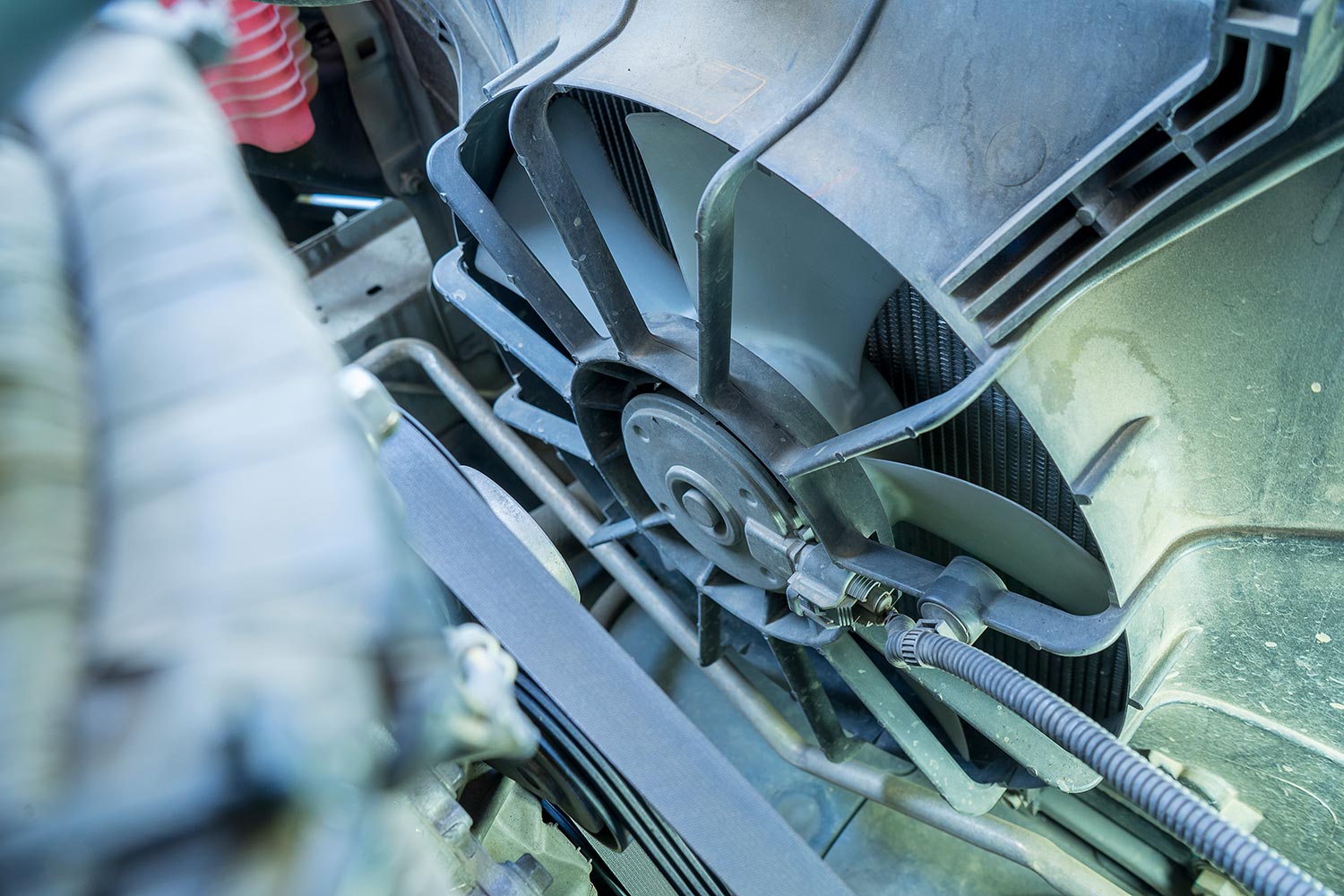
Is There A Fuse For The Radiator Fan?
Yes, there is a fuse for the radiator fan. Generally, the fan uses a big fuse which is about 50A. There can also be another small fuse to the control module of the fan. You should bear in mind that if the fuse is blown, the wirings or fan may be having some issues.
The fuse for the fan is found in the fuse box, which can be located in the engine compartment, typically close to the fender on either the driver's or passenger's side of the car.
The fan fuse protects the entire component from any short circuits or voltage overloads. It does this by shielding the radiator's electric-cooling fans from potential danger.
Does The Thermostat Affect Radiator Fan?
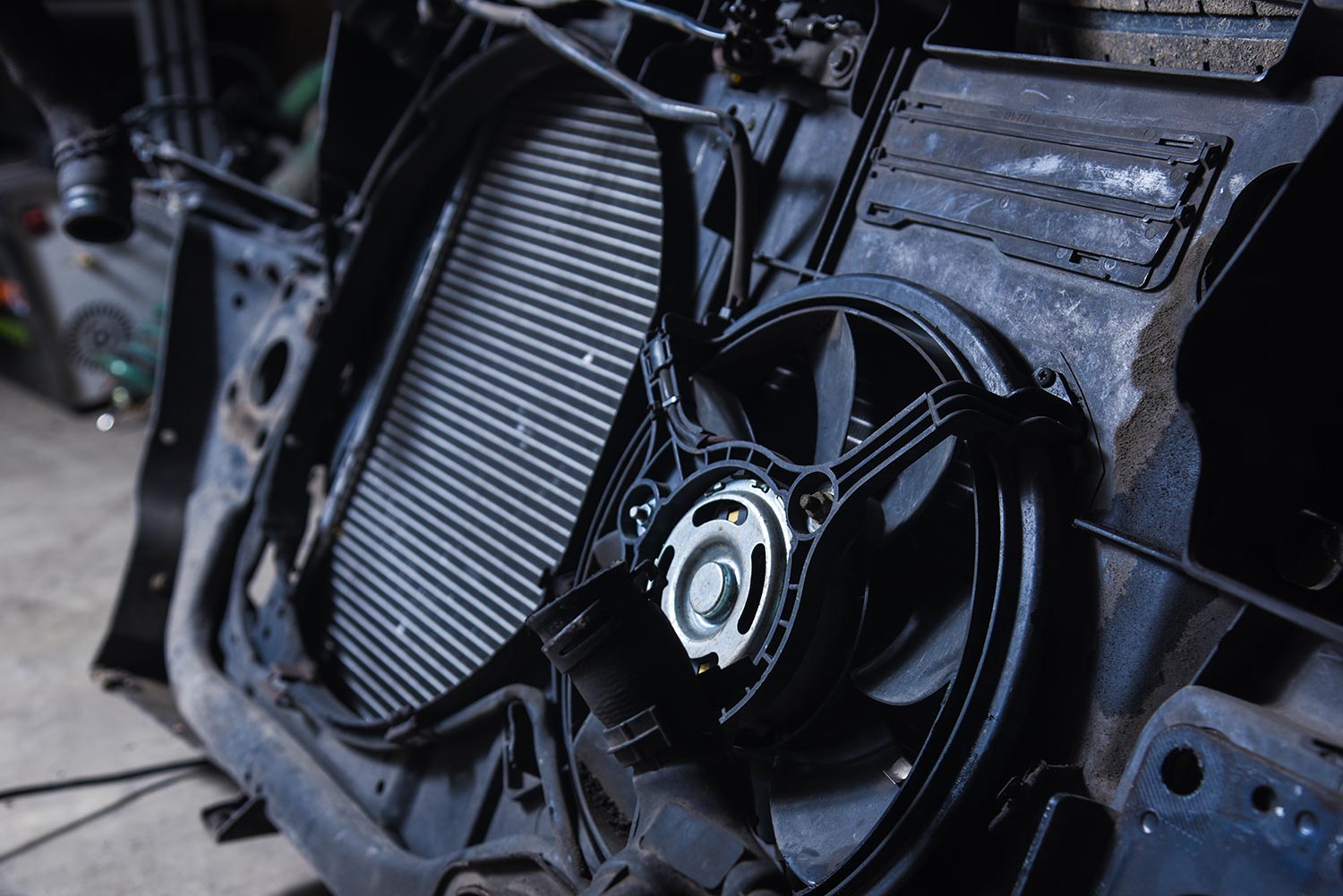
The thermostat does impact the radiator fan. If the thermostat were removed from the engine cooling system of a car and the fan was allowed to operate continuously, there would be a decline in its operations. The thermostat is responsible for controlling the flow of coolant to your radiator.
If the thermostat does not open when the engine reaches the operating temperature, the coolant will be contained within the engine block. This may cause the radiator fan to malfunction.
To Wrap Up
If you notice that your car fan is not turning off, you should try removing the negative side of your car's battery. You can also check your coolant level to see if it is low. After doing these things, if you are still unable to detect the source of the problem, you can consult a professional.
If you enjoyed reading this post, here are similar articles you may like:


